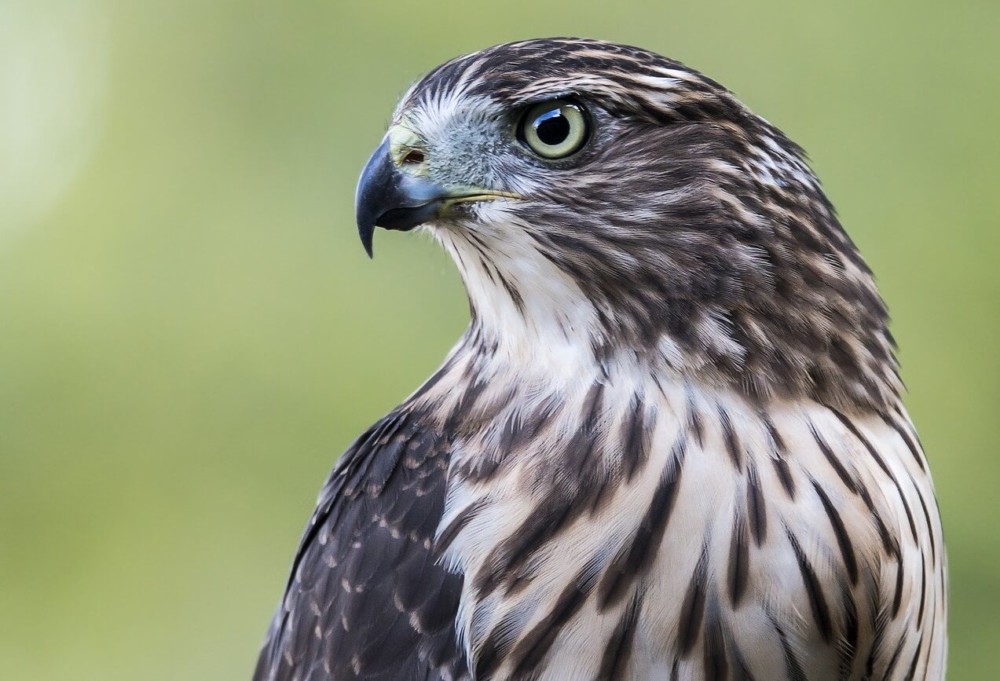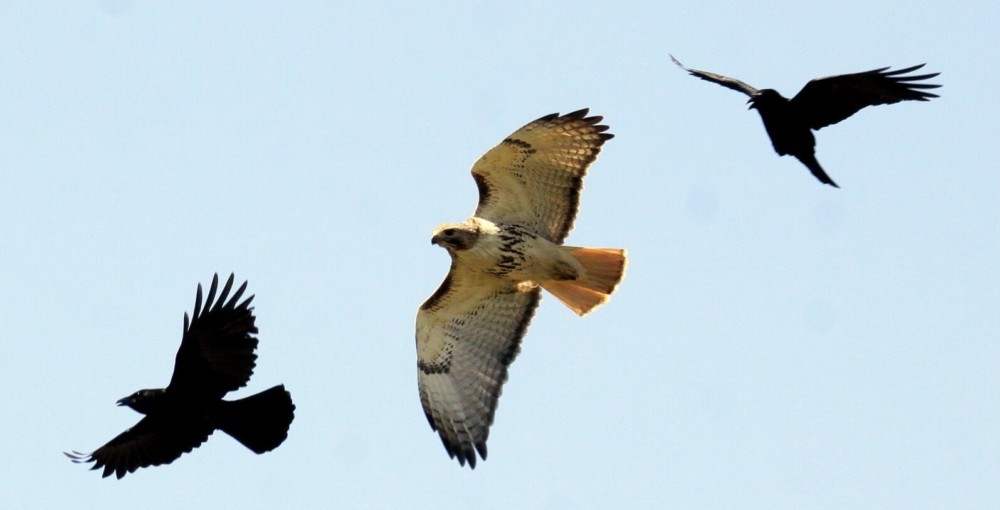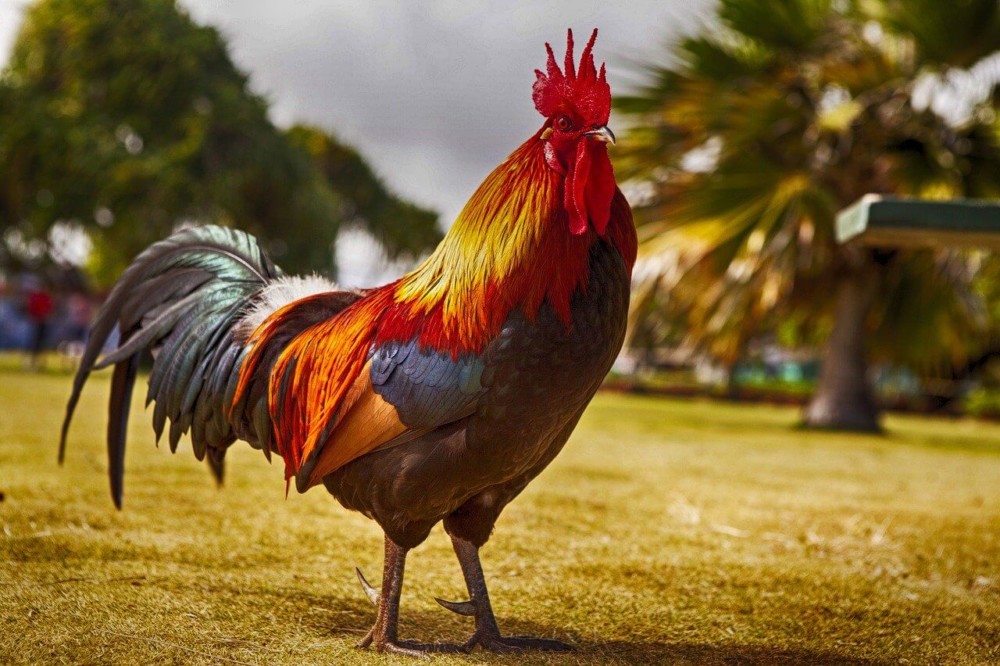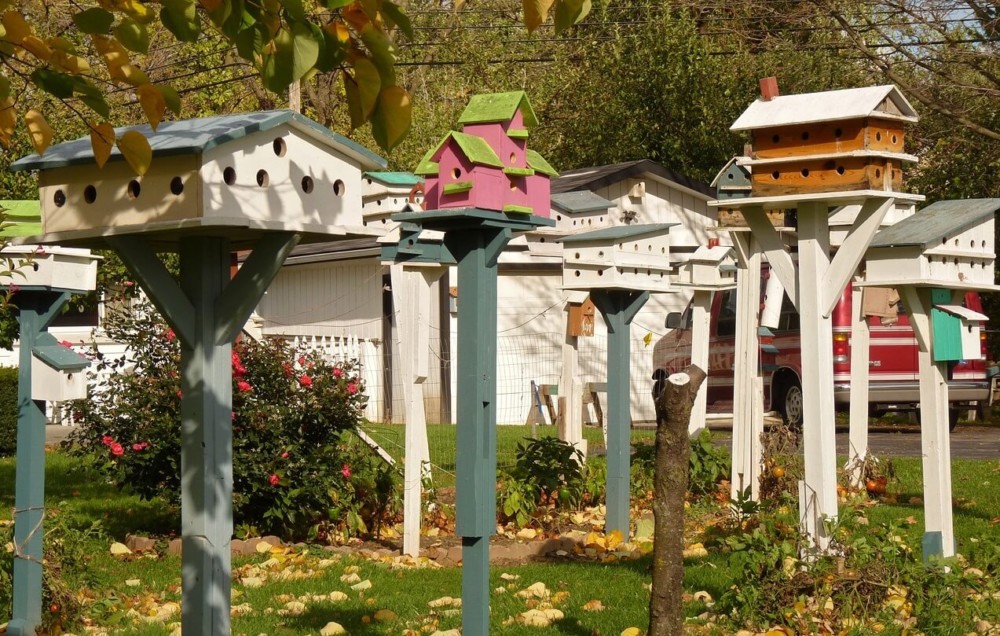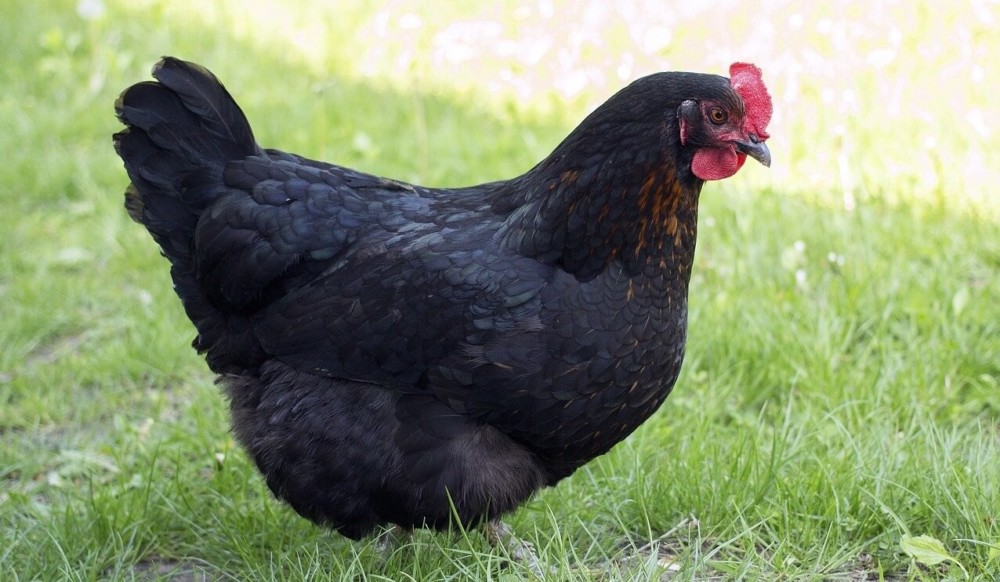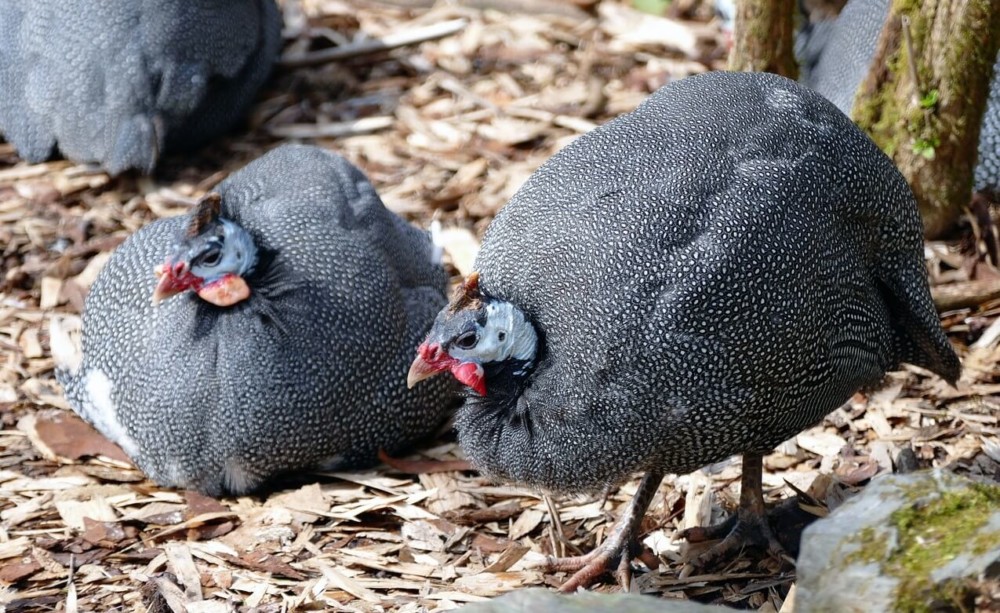In Northern America, hawks abound. While beautiful and majestic, they can also pose a great danger to chickens. Hawks are strong, have great eyesight, and are fast. Even the smaller hawks of North America such as Cooper’s hawk and the Red-tailed hawk are incredibly strong and can be aggressive against chickens.
A chicken doesn’t stand a chance against a hungry hawk. So, it’s important to take a few precautions to protect your chickens from hawk attacks.
But, what’s the best way? And how can you protect chickens without spending a fortune on hardware cloth and covered runs? Plus, if you want to let your chickens free-range, then how can you still protect them?
The best way to protect chickens from hawks is to prevent the hawks from being able to dive for your chickens. While a covered run does this, it is also expensive to implement. Instead, you can fool the hawks into avoiding your chickens by adding black chickens to your flock, using plants to create layers in your yard, or using visual illusions to fool the hawks.
Let’s dive in. It’s much simpler than it sounds and it won’t take you a lot of time or money to implement. Yet, it will be just as effective as the more costly solutions.
1. Add Black Chickens To Your Flock
Hawks hate crows. That’s the best explanation I have for why this method works so well. Crows and ravens are aggressive and love to chase and torment hawks. Few things are as funny as watching a crow chase a hawk across the sky- especially considering the size difference. I’m not sure what caused this life-long feud, but you can take advantage of it.
Simply adding black chickens to your flock will make hawks very hesitant to attack the other chickens in your flock. Although hawks have great eyesight, (they can see tiny mice in a field while flying over) they don’t seem to have evolved to recognize that black chickens are still chickens and not crows.
Many people suggest trying to attract crows or ravens to keep hawks away from your hens, but this is easier said than done. It’s also impractical to have crow or owl decoys that you have to move around daily to “trick” the hawks into thinking they are alive.
Hawks are smart and quickly figure out that a decoy is just that- not alive or a threat.
Black Austraulorps, Black Orpingtons, or the Minorca are all great additions to your flock. Austraulorps and Orpingtons are some of the best egg layers of all the chicken breeds and will continue to lay during the deepest, darkest, coldest part of winter.
So, without additional expense, except that of expanding your flock, you can protect all your chickens and very effectively increase the production of eggs in your flock.
2. Add A Rooster To Your Flock
If you live outside city limits, you are probably able to add a rooster to your flock. Roosters are amazing at keeping an eye on the sky and warning the hens that danger is near. They are also more likely to attack a hawk and because they are larger, not likely to be carried away.
Some breeds of roosters are more aggressive than other breeds so it’s important to consider if you want a rooster that’s going to be people-friendly or one that’s likely to see you as a danger as well. Some of the friendlier breeds of roosters include the Austraulorp, Orpington, and Wyandotte roosters. We also love our Sapphire Gem rooster, a sub-breed of a Plymouth Rock.
Raise the roosters from chicks and keep them cuddled, petted, and loved and most roosters will be much friendlier toward people while still protecting the flock.
3. Add Wild Bird Houses Around Your Coop
Nature lovers, a great way to help protect your chickens and bring more of nature’s beauty into your yard is to provide birdhouses around your chicken coop.
Chickadees, bluebirds, robins and other wild birds are on the bottom of the pecking order and have to keep a sharp eye out for hawks. They are much more observant than chickens at noticing hawks.
The noise that the wild birds create warning each other will also alert your chickens to keep a sharper eye out for hawks and stay close to cover.
Birdhouses encourage these beautiful wild visitors and help to create a great symbiotic relationship. Our chickadees and robins finish off the leftover scraps that the chickens and ducks don’t eat and provide lovely bird-watching for my family.
Learn how to attract robins, woodpeckers, bluebirds, finches, hummingbirds to your yard safely.
4. Create Multiple Layers In Your Coop
It really isn’t complicated to protect chickens from hawks, eagles, ospreys, or owls. Simply create places that they can duck for cover. These birds of prey need to be able to dive and soar to effectively steal a chicken.
When you have bushes, trees, fencing, and other layers in and around your coop, it makes it really difficult for hawks to get enough air to attack a chicken.
Bushes and trees provide additional benefits to your flock as well. In the summer, they provide shade and in the winter, they provide areas with less snow where your chickens can scratch around.
They also provide green vegetation for the hens to munch on and will attract more bugs for foraging. So adding green layers and plants to your coop will increase the happiness, health, and safety of your flock.
5. Break Up The Area Visually To Make It Hard To Dive
Hawks can be fooled by light and although their depth perception is very acute, they have a hard time telling where a flash of light comes from. Use fishing line to criss-cross an open area where your chickens are more vulnerable to a hawk attack.
Fishing line reflects the light and will make it hard for a hawk to get down and get a chicken. While you could criss-cross your entire chicken run with fishing line, you can also focus on the most vulnerable areas. An open area where your chickens drink water or eat will be the best place to add some fishing line. While hens are eating or drinking, they are the very least observant of any time.
If that area is out in the open, add a little fishing line to create added protection.
Another option is to hang old CDs or pie pans in an area to create light reflection and help scare away hawks. This is more effective during specific times of the day and when there is a slight breeze.
6. Get A Watchdog or Watch Animal
A good watchdog running around the yard will deter hawks from eyeing your chickens. But, you must be careful. Not any dog will do. Many dogs can become predators of your chickens themselves.
You’ll need to raise your watchdog around the chickens and get a breed that works better at protecting than hunting. Avoid super aggressive breeds. Proper training of your watchdog is important. Don’t allow it to be too aggressive as a pup and train it to protect, not torment your hens.
Other “watchdogs” include utilizing animals as guard your flock. Great guard animals include:
- Guinea fowl
- Turkeys
- Geese
- Llamas
- Alpacas
- Donkeys
Geese and Guinea fowl are much more aggressive, and noisy, against predators. But, many of the other guard animals’ larger size is enough to scare hawks away from even trying.
Conclusion
You will find a lot of expensive and not much more expensive solutions for keeping hawks away from your chickens. But, the solutions listed above are super effective without becoming expensive and time-consuming.
Related Articles
You might also find these related articles useful.
What is the Best Animal to Protect Chickens?
Protect Chickens From Hawks, Eagles and Owls
One Legged Chickens: Survival Rate, Diagnosis, & Treatment Part 1 of 3
My Favorite Chicken and Duck Supplies
This list contains affiliate products. Affiliate products do not cost more but helps to support BestFarmAnimals and our goal to provide farm animal owners with accurate and helpful information.
Manna Pro Oyster Shell keeps eggs strong. Before I gave my chickens oyster shell, I had the oddest eggs, many with weak and irregular shells. Now, I don’t have an issue.
Layer Feed by Manna Pro. I like pellets rather than crumbles as my chickens eat them better and less gets wasted or scavenged by rodents. A good layer feed makes the difference in hens laying many more eggs.
My chickens love this mealworm treat, which gives added protein, something that’s great during molting and winter months.
There are many ways to feed and water your chickens. I like this food and water setup the best because it reduces waste, saves me time feeding and watering, and keeps the food fresh longer. Except, in the winter, I use a heated waterer. The only problem is the heated waterers need to be replaced every few years.
I love this chicken veggie hanger. It makes it easy to give your chickens produce from the garden and keep them occupied in the winter with a fresh head of lettuce.
These chicken toys are a hoot! They will help curb bullying and keep your chickens active, especially in the winter when hens tend to get more lethargic.

